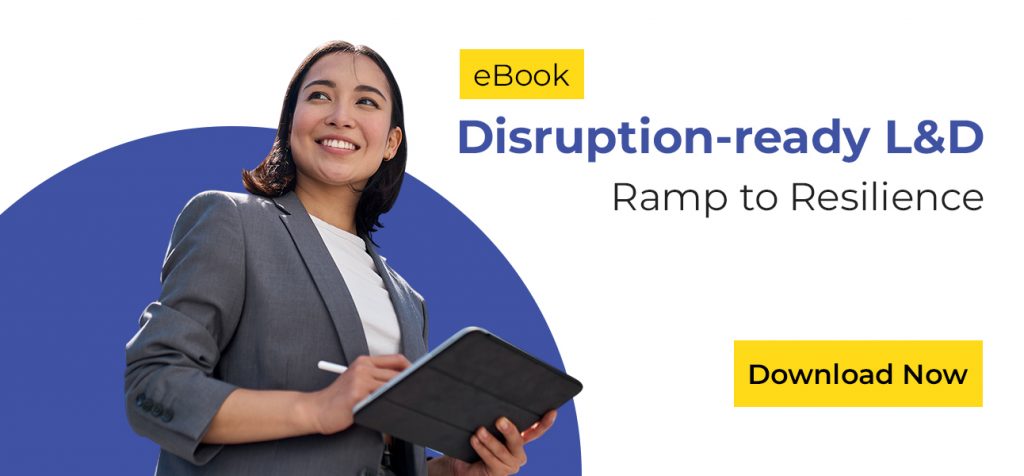From Theory to Practice: The Experiential Learning Advantage

Albert Einstein wisely stated, “The only source of knowledge is experience.” This timeless truth underscores the profound effectiveness of experiential learning in shaping high-impact training outcomes. Now more than ever, businesses must focus on creating an impactful training strategy. This is where the concept of experiential learning comes to the rescue. Experiential learning provides real and predictable training, whether it is a school, a multinational corporation, or a business.
One’s approach to learning mirrors their approach to life as a whole. It shapes how they tackle challenges, solve problems, make decisions, and navigate life’s complexities. Learning, a perpetual journey, transcends any specific environment and spans their entire lifetime. Experiential learning is at the heart of this process—a catalyst for enhancing performance, facilitating growth, and fostering continuous development.
Understanding the Concept of Experiential Learning
Experiential learning is the process of learning through practicing, experiencing, or doing the activity in real life. By involving the students or employees in hands-on experiences, they will be able to grasp the concepts much better. Regarding the corporate or business world, employee training, upskilling, or reskilling has become necessary. From the grave need to maintain the retention rate to attract the right talent, 83% of organizations are inclining towards creating a more people-centric culture.
Blending theoretical concepts with hands-on experiences, this form of immersive learning offers learners a blend of theory and practice, enabling them to experience purposeful engagement, attain insightful revelations through reflection, foster an emotional connection to their work, and establish significant and productive professional connections.
Experiential learning cultivates active engagement and immersion among learners, which in turn empowers employees to acquire invaluable work-centric skills, specialized content-area expertise, and enhanced soft skills encompassing communication, customer service, time, and project management, among a myriad of other advantages.
Four Main Types of Experiential Learning
Experiential learning can be an exquisite way of learning. There can be numerous ways through which organizations or schools can carry out this type of learning. Discussed below are the four main types of experiential learning activities.
Problem-Based Learning Through Branching Scenarios
This approach places learners in dynamic situations where they encounter challenges and must make decisions. As they progress through these scenarios, they are presented with various options, each leading to distinct outcomes. Learners gain a deeper understanding of cause-and-effect relationships, honing their analytical skills as they weigh the implications of their choices. This method encourages learners to think critically, consider multiple perspectives, and refine their decision-making processes.
Case Studies Through Story-Based Learning
Storytelling is a powerful tool that resonates with human experiences. In the context of experiential learning, case studies woven into narratives provide learners with real-world contexts. By immersing themselves in these stories, learners develop the ability to connect theoretical concepts to practical scenarios. They learn to identify relevant information, apply theories to solve complex problems, and adapt their solutions to changing circumstances, mirroring the intricacies of real life.
Digital Simulations
Leveraging technological advancements, digital simulations replicate intricate real-life scenarios in a controlled environment. Learners can experiment, practice, and make decisions without the fear of real-world consequences. This type of experiential learning is particularly effective in fields such as medicine, aviation, and engineering, where hands-on practice is vital but can be costly or risky. Digital simulations provide a safe space for learners to explore different approaches, learn from failures, and refine their techniques.
Virtual Role-Playing
Virtual role-playing immerses learners in interactive environments where they assume specific roles and engage in simulated interactions. This method nurtures empathy and interpersonal skills as learners experience situations from various perspectives. They must adapt their communication style, negotiation tactics, and problem-solving strategies based on the roles they inhabit. By inhabiting different personas, learners develop a broader understanding of human behavior, enhancing their ability to collaborate and communicate effectively in diverse settings.
Experiential Learning Resulting in Impactful Training Outcomes
Experiential learning can assist an individual in developing or grasping new skills, enhancing their knowledge base, and giving a boost to their problem-solving skills. Not only this, but they can also get a better understanding of their skills and expertise and the world around them. By actively participating, reflecting on outcomes, and internalizing lessons from their experiences, learners are better equipped to navigate complex challenges, make informed decisions, and excel in their chosen fields.
Recent Blogs

Why LaTeX Still Matters in Scholarly Publishing—and How the Right Partner Makes All the Difference

Print, Pedagogy, and AI: The New Architecture of Educational Publishing



